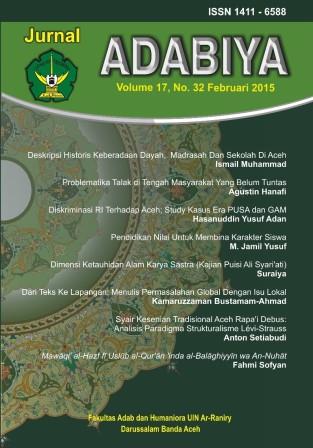References
American Library Association (ALA) Presidential Committee on Information Literacy (1989). Final Report. Chicago: American Library Association.
Bruce, C. (2003). Seven Faces of Information Literacy: Towards Inviting Students Into New Experiences. Retrieved from http://www.bestlibrary.org /digital/files/bruce.pdf
Cooke, N. A. (2018). Fake News and Alternative facts: Information Literacy in a Post-Truth Era. Chicago: American Library Association Editions.
Eisenberg, M., Lowe, C. A., & Spitzer, K. L. (2004). Information literacy: Essential skills forthe information age (2nd edition). Westport, CT: Libraries Unlimited.
Elmborg, J. (2006). Critical Information Literacy: Implications for Instructional Practice. The Journal of Academic Librarianship, 32 (2), 192–199.doi: 10.1016/j.acalib.2005.12.004
Filak, V. F. (ed.). (2019). Convergent Journalism: An Introduction: Writing and Producing Across Media. New York: Routledge.
Gregory, J. (2019). Teaching Disinformation Literacy. Retrieved from https://www.oif.ala.org/oif/teaching-disinformation-literacy/
IFLA (2017). How To Spot Fake News - IFLA in the post-truth society. Accessed at http://www.ifla.org/publications/node/11174
Kuhlthau, C. C (1987). Information Skills for an Information Society: a Review of the Research. Syracuse, NY: ERIC Clearinghouse on Information Resources.
Post Truth (2019). In The Cambridge Advanced Learner's Dictionary & Thesaurus. https://dictionary.cambridge.org/dictionary/english/post-truth
Reitz, J. M. (2004). “Online Dictionary for Library and Information Science.” Accessed at https://products.abc-clio.com/ODLIS/odlis_i.aspx#infoliteracy
Rose, J. (2017), “Brexit, Trump, and Post-Truth Politics”, Public Integrity, 19:6, 555-558, DOI: 10.1080/10999922.2017.1285540
Ruslan, R. (2018). “Web 2.0 and Library 2.0: Designing An Information Literacy Plan in Higher Education. Progresif, 2(2), pp. 291-304. Retrieved from shorturl.at/kzN38
Shapiro ,J.J. and Hughes, S.K. (1996). “Information literacy as A Liberal Art: Enlightenment Proposals for A New Curriculum.” Educom review, 31(2), pp. 31-35.
Statiska (2020). “Penetration of Leading Social Networks in Indonesia as of 3rd Quarter 2019”, Statiska, accessed 4 June 2020, http://statiska.com
Tesich, S. (1992). “A Government of Lies”. The Nation. Retrieved from https://drive.google.com/file/d/0BynDrdYrCLNtdmt0SFZFeGMtZUFsT1NmTGVTQmc1dEpmUC1z/view
UNESCO (2003). The Prague Declaration: Towards An Information Literate Society. Prague, Czech Republic, 20-23 September 2003. Retrieved from http://portal.unesco.org/ci/en/files/19636/11228863531PragueDeclaration.pdf/PragueDeclaration.pdf
UNESCO (2004). “The plurality of literacy and the implications of its policies and programs: UNESCO Education Position Paper”, UNESCO. Accessed at http://unesdoc.unesco.org images/0013/001362/136246e.pdf
Zurkowski, P. G. (1974). The Information Service Environment: Relationships and Priorities. Washington, DC: National Commission on Library and Information Science. Retrieved from http://www.eric.ed.gov/PDFS/ED100391.pdf



